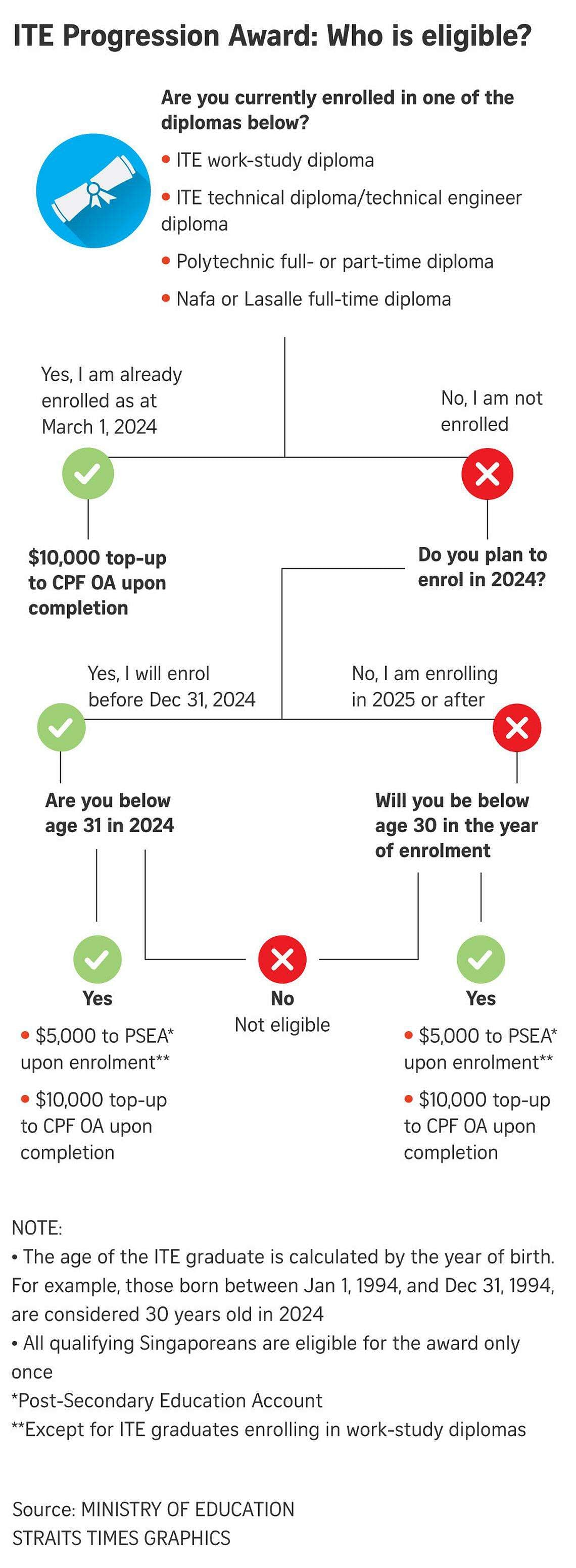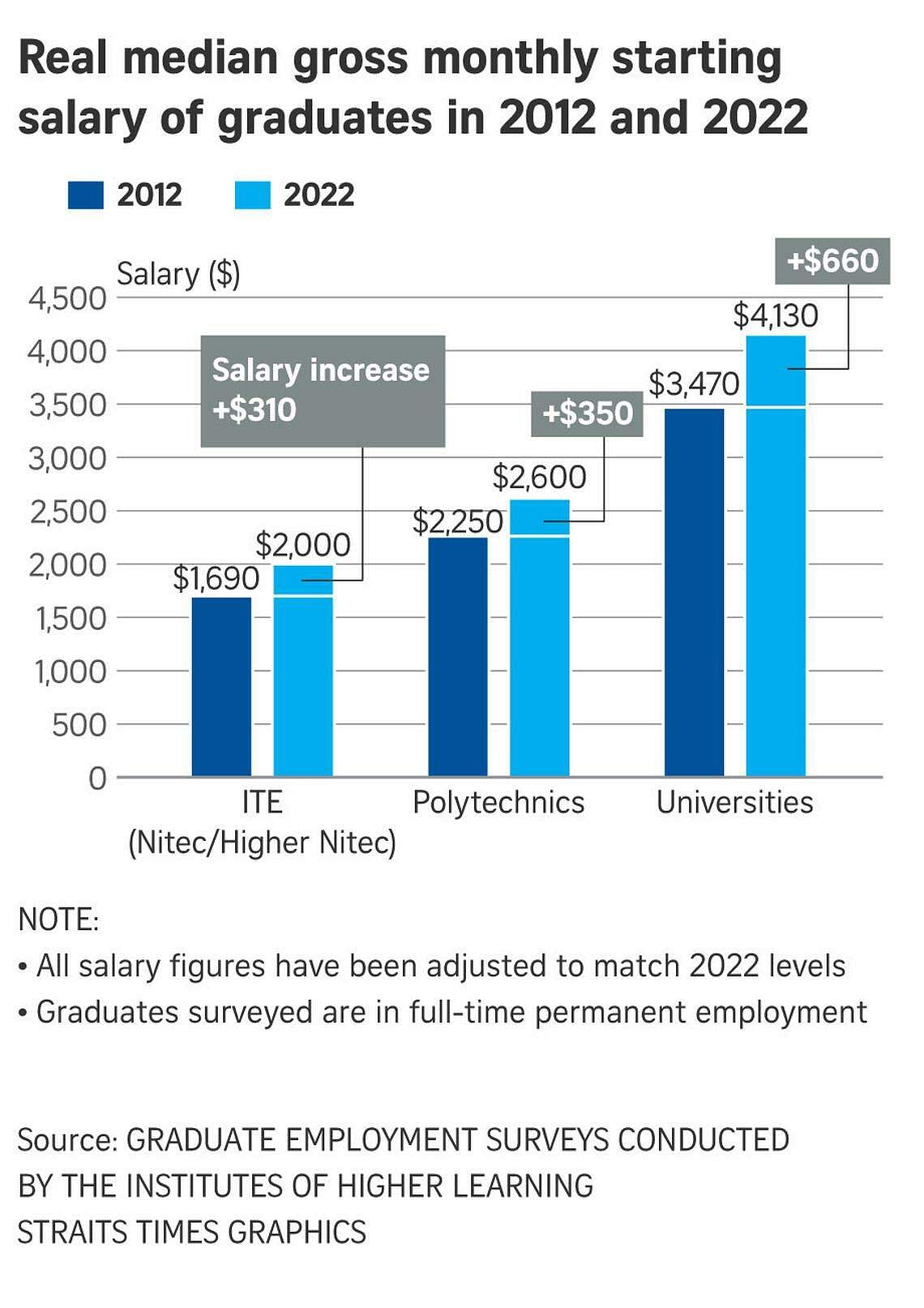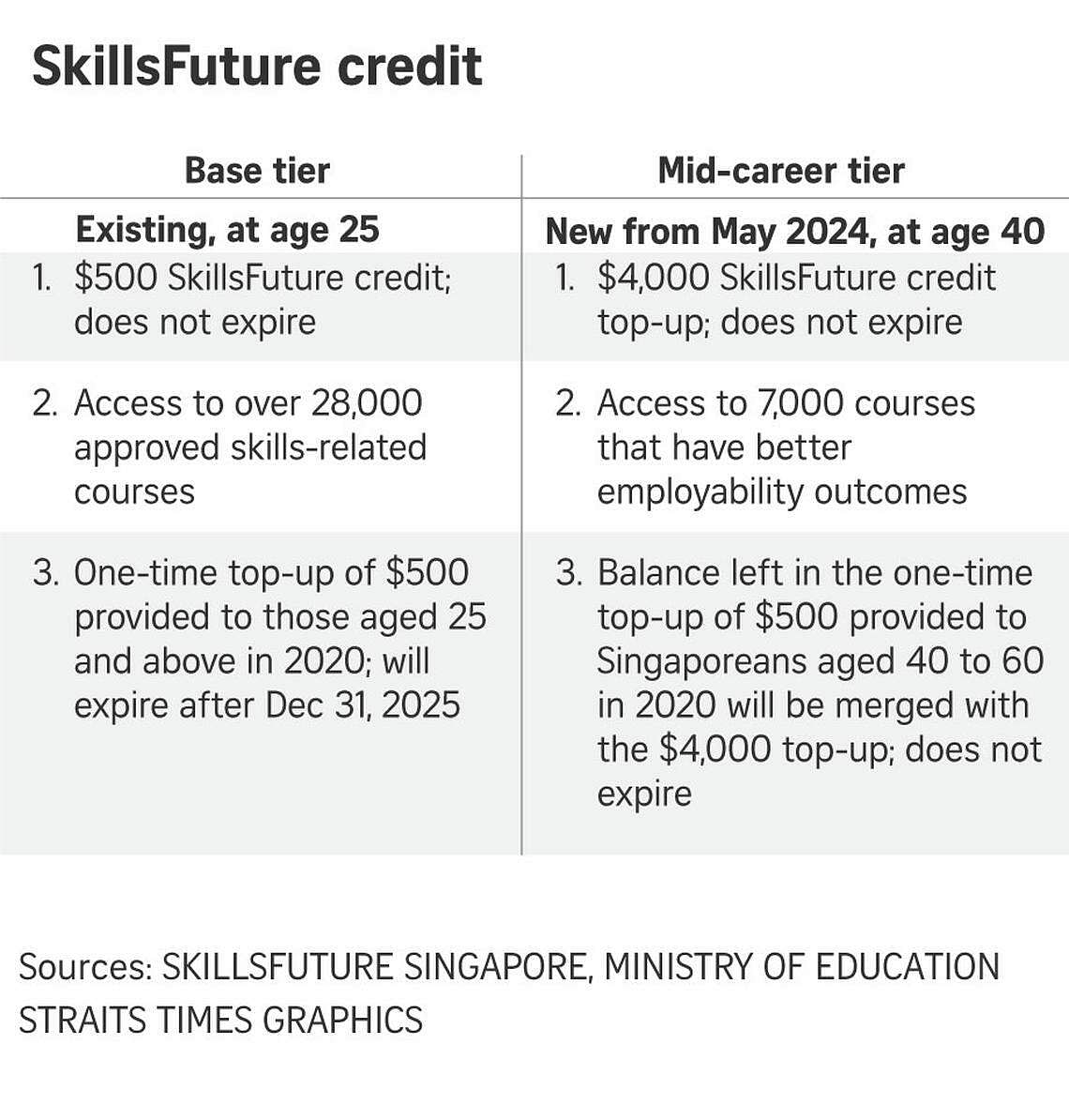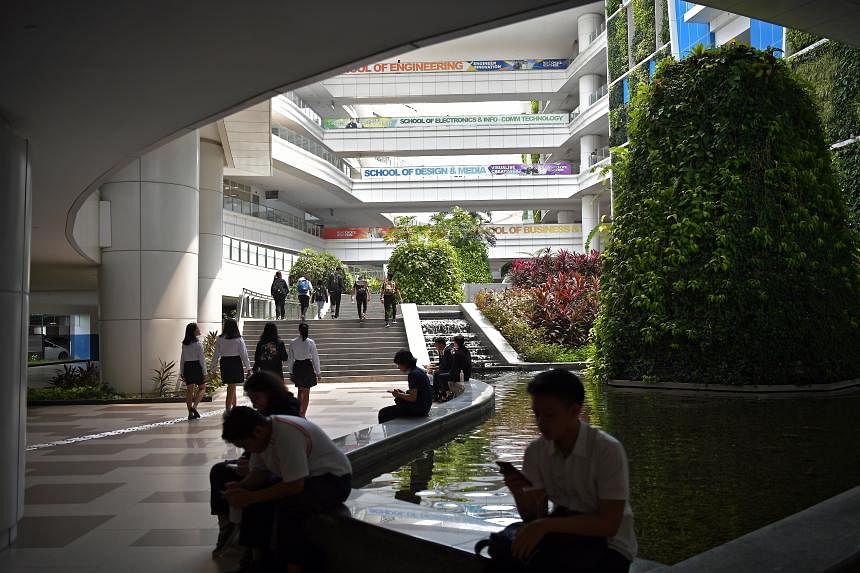SINGAPORE – Many Singaporeans worry that the system gives them only one shot at success, and that their future is set in stone after their first 15 years of schooling.
The reality is that there is a lifetime to find one’s purpose and calling, and to pursue them in different seasons of life, Education Minister Chan Chun Sing said on March 1, as he outlined the Government’s efforts to invest more in individuals through a lifetime journey of education and upskilling.
In total, Singaporeans will each receive $300,000 or more in subsidised school fees and government support across their lives, he said during the debate on his ministry’s budget.
“We will continuously invest in our people to help them to do well not just for the first 15 years in school, but over the next 50 years and beyond,” said Mr Chan.
More investment in ITE graduates
On average, the Government invests more than a quarter of a million dollars in every Singaporean child to prepare them for their first career, said Mr Chan.
Around $200,000 is invested in each student up to the secondary school level, followed by more subsidies to support students at the post-secondary level to obtain an Institute of Technical Education (ITE) certificate, a diploma or a degree, he added.
Currently, an ITE student receives about $70,000 in subsidies for a Nitec and Higher Nitec qualification. The Government will invest more in them, said Mr Chan.
With the new ITE Progression Award (IPA), as announced by Deputy Prime Minister Lawrence Wong in his Budget speech on Feb 16, ITE graduates aged 30 and below will receive financial incentives of up to $15,000 to pursue a diploma and secure better career progression prospects.
They will get $5,000 in their Post-Secondary Education Account when they enrol in a diploma programme, and $10,000 in their Central Provident Fund (CPF) Ordinary Account when they complete the diploma.
An ITE student who goes on to upgrade his qualification could receive a lifetime investment of up to $380,000, said Mr Chan.
More than 7,000 ITE graduates are expected to enrol in an eligible diploma each year, said the Ministry of Education (MOE).
“The IPA is expected to cost about $105 million per year, which could grow if the take-up is higher,” it said. As a one-off arrangement, the IPA will be given to those currently in a diploma programme, and to those aged 31 who plan to enrol in 2024, the ministry said.

About 1,500 graduates are expected to benefit from this one-off arrangement over the next few years.
All Singaporean ITE graduates who are enrolled in diploma programmes by MOE-funded institutes of higher learning (IHLs) as at March 1, regardless of their age, will receive a $10,000 top-up to their CPF Ordinary Account upon completing the programme.
Singaporean ITE graduates aged 31 – those born between Jan 1, 1993, and Dec 31, 1993 – who enrol in a diploma programme issued by MOE-funded IHLs in 2024 will be eligible for both top-ups.

More support for mid-career workers
For working adults aged 40 and above, Mr Chan said the $4,000 top-up under the SkillsFuture Level-up Programme, which was previously announced, will give them access to more than 7,000 full- and part-time courses with better employability outcomes.
These courses include academic full qualification programmes offered by IHLs, including diplomas, post-diplomas, undergraduate and postgraduate degrees, as well as shorter modules.
To encourage further upskilling for mid-career workers, more subsidies will be given to those aged 40 and above to pursue a second full-time diploma, said Mr Chan.
Those in this age group who enrol in selected full-time courses will also get a monthly training allowance equivalent to 50 per cent of their average income over the latest available 12-month period, up to $3,000 a month.

All these initiatives – under the SkillsFuture Level-up Programme – will cost an additional $100 million each year, and more if there is stronger take-up, said Mr Chan.
“This is a significant investment by the Government, and underscores our commitment to SkillsFuture as a key pillar of our social compact,” he said.



